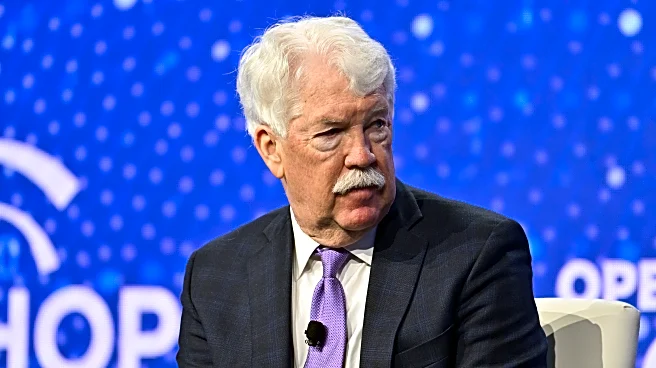What is the story about?
What's Happening?
WWE has recently made a series of cuts within its developmental system, affecting several talents including Wes Lee, Stevie Turner, Drako Knox, and others. These departures are not linked to budgetary constraints but are part of WWE's strategy to prioritize fast results and visible growth among its developmental talent. According to Bryan Alvarez, WWE's current approach does not reward long-term potential but instead focuses on immediate performance. The company maintains over 130 individuals in its developmental roster and regularly recruits new talent. Those who do not progress quickly or are not seen as future main roster players are released to make room for new prospects.
Why It's Important?
The decision to implement performance-based cuts in WWE's developmental system highlights the company's focus on immediate results over long-term development. This approach could impact the careers of many aspiring wrestlers who may require more time to develop their skills. It also reflects WWE's competitive environment, where only those who can quickly demonstrate potential for the main roster are retained. This strategy may influence how other wrestling promotions manage their talent development, potentially leading to a shift in industry standards regarding talent progression and retention.
What's Next?
WWE insiders suggest that more cuts could be forthcoming as the company continues to evaluate its developmental talent. This ongoing process may lead to further changes in the roster, as WWE seeks to optimize its talent pool for future main roster success. Stakeholders, including talent agents and wrestling schools, may need to adjust their strategies to align with WWE's performance-driven approach, potentially affecting how new talent is scouted and trained.
Beyond the Headlines
The cutthroat nature of WWE's developmental system raises questions about the ethical implications of prioritizing immediate performance over nurturing long-term potential. This approach may lead to increased pressure on young talent to perform quickly, potentially affecting their mental health and career longevity. Additionally, the focus on fast results could influence the cultural dynamics within the wrestling industry, as promotions may increasingly adopt similar strategies to remain competitive.
















